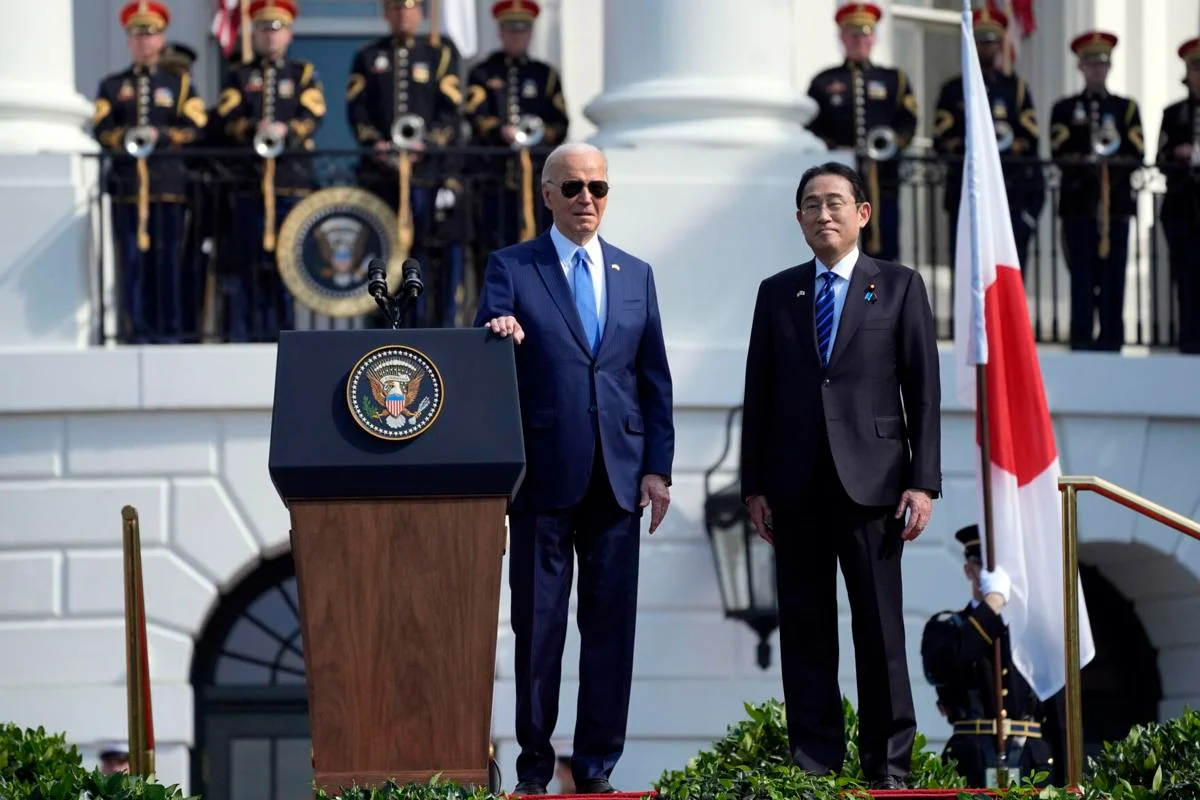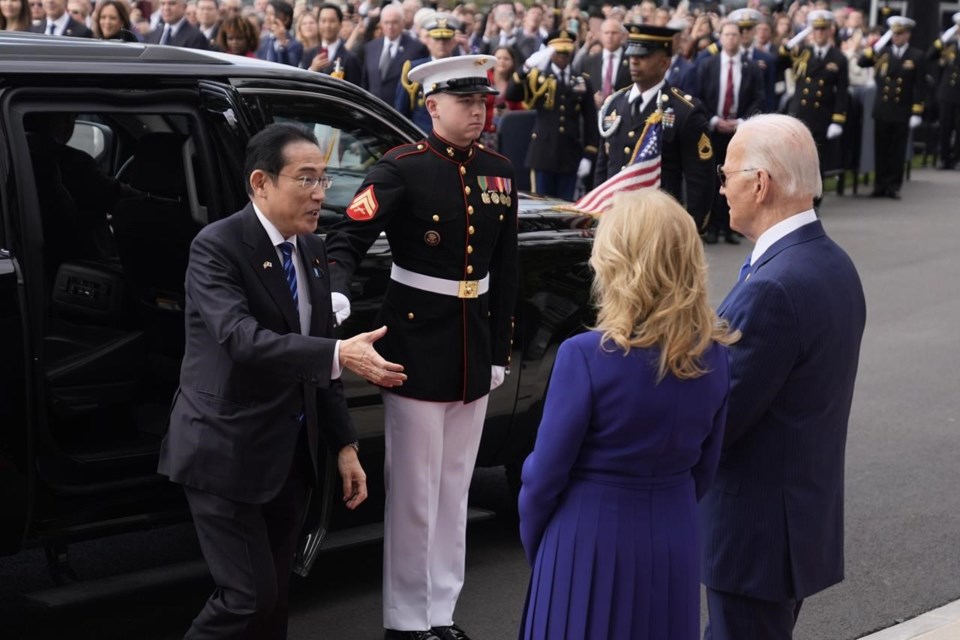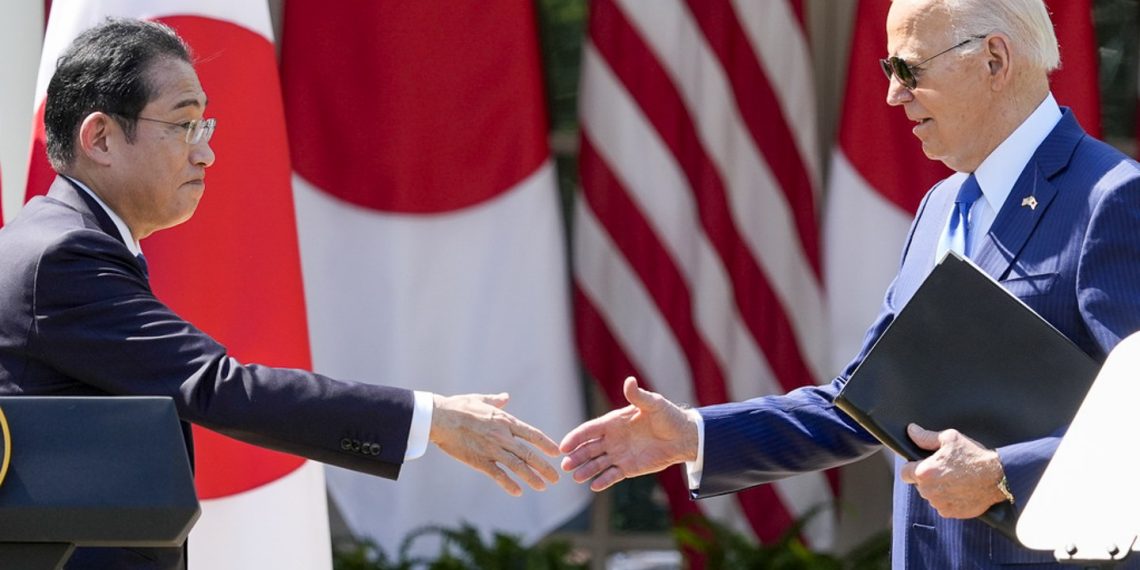U.S. President Joe Biden and Japanese Prime Minister Fumio Kishida heralded a transformative phase of strategic cooperation between their nations during a Washington summit.
Their joint statement outlined a comprehensive set of initiatives, spanning from collaborative missile development to joint lunar exploration, while also condemning China’s escalating actions in the region.
Highlighting the need for a global security partnership adaptable to multifaceted challenges, Biden and Kishida emphasized their commitment to bolstering alliances.

Biden reiterated the unwavering U.S. pledge to defend Japan using all available capabilities, including nuclear, marking the commencement of an unprecedented era of security cooperation.
The planned upgrade of military command-and-control frameworks aims to enhance interoperability and facilitate strategic planning during both peace and conflict.
Against the backdrop of heightened tensions with China, the United States and its allies, including Japan, have been fortifying their military capacities, particularly in regions like the South China Sea and around Taiwan.
The defense initiatives extend to upgrading communication networks and coordinating air defense capabilities among the U.S., Australia, and Japan to effectively counter air and missile threats.

The establishment of a forum for defense-industrial cooperation will facilitate joint efforts in missile co-development, maintenance of warships and aircraft, and fighter pilot training utilizing advanced technologies like artificial intelligence and simulators.
A significant highlight of the joint statement was the shared ambition for a Japanese astronaut to partake in the Artemis mission, aiming to return humans to the moon by 2026.
Collaboration under the AUKUS defense project, involving advanced capabilities and technologies such as quantum computing and hypersonic technology, underscores the depth of cooperation between the three partners.





